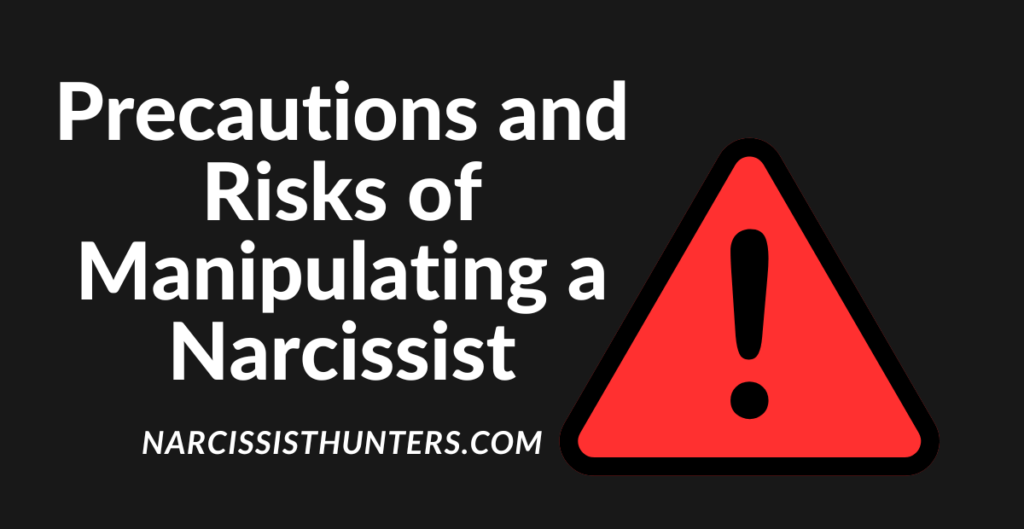Have you ever found yourself in a difficult relationship with a narcissist? It can feel like a never-ending cycle of attention-seeking, validation-seeking, and control-seeking behavior that can leave you feeling frustrated and helpless. But what if you could learn how to manipulate a narcissist?
By understanding their behavior and using effective techniques, you can gain the upper hand and establish a healthy relationship with a narcissist. In this blog post, we will explore four powerful techniques for manipulating a narcissist, along with the possible risks and consequences of doing so. If you’re ready to take control of your relationship with a narcissist, keep reading.
Explanation of Narcissism
Narcissism can be defined as a personality trait that is characterized by self-love, self-importance, and a preoccupation with oneself. It is named after the Greek myth of Narcissus, who fell in love with his own reflection in a pool of water.
Narcissists may seem charming and confident on the surface, but they often have an underlying insecurity and fear of rejection. They seek admiration and validation from others to reinforce their sense of self-worth.
Characteristics of a Narcissist
- A grandiose sense of self-importance
- Preoccupation with fantasies of unlimited success, power, brilliance, beauty, or ideal love
- Belief that they are special and unique
- A need for excessive admiration
- A sense of entitlement
- Interpersonal exploitation
- Lack of empathy
- Envy of others or belief that others are envious of them
- Arrogant or haughty behavior
Importance of Knowing How to Manipulate a Narcissist?
Knowing how to manipulate a narcissist can be an important skill to have, especially in personal and professional relationships where you may encounter them. Manipulation techniques can help you navigate difficult situations and interactions with narcissists.
However, it is important to use these techniques carefully and with caution, as there are risks and potential consequences associated with manipulating a narcissist.
Is Manipulating a narcissist Easy?
No, manipulating a narcissist is not easy, and it should not be taken lightly. Narcissists are often skilled at manipulating others and may have a high level of emotional intelligence. Trying to manipulate a narcissist without proper understanding and caution can result in negative consequences, including the possible escalation of their controlling behavior or even retaliation.
4 Techniques To Manipulate a Narcissist

As I said above, to manipulate a narcissist is not easy, but there are techniques that can be effective. Here are some techniques for manipulating a narcissist:
1. Flattery and Praise
Narcissists crave validation and praise, so using flattery and compliments can be a powerful tool for manipulation. Here are two ways to use flattery and praise to manipulate a narcissist:
A. Giving Compliments
Narcissists love to be told how wonderful they are, so giving genuine compliments can be an effective way to manipulate them. The key is to make sure the compliments are specific and genuine. Avoid giving generic compliments like “you’re amazing” or “you’re the best.” Instead, focus on specific things that the narcissist has done well.
B. Appealing to their Ego
Narcissists have a strong sense of self-importance, so appealing to their ego can be a powerful tool for manipulation. This can be done by asking for their opinion, seeking their advice, or acknowledging their expertise. The key is to make them feel valued and important.
2. Using Emotional Appeals
Narcissists may lack empathy, but they are not immune to emotional appeals. Here are two ways to use emotional appeals to manipulate a narcissist:
A. Empathizing with their Situation
While narcissists may struggle to empathize with others, they often have a heightened sense of their own emotions. You can use this to your advantage by empathizing with their situation. Acknowledge their feelings and show that you understand their perspective. This can help to build trust and rapport.
B. Appealing to their Sense of Sympathy
Narcissists may lack empathy, but they often have a strong sense of their own suffering. You can use this to your advantage by appealing to their sense of sympathy. Show them how their actions are hurting you or others and appeal to their sense of compassion.
3. Playing to their Competitiveness
Narcissists love to win, so playing to their competitiveness can be an effective tool for manipulation. Here are two ways to do this:
A. Making it a Game
Frame the situation as a competition and challenge the narcissist to “win.” This can motivate them to cooperate and work towards a common goal. Be careful not to make it too obvious or confrontational, as this can trigger defensiveness.
B. Appealing to their Sense of Winning
Narcissists love to win, so appealing to their sense of winning can be a powerful tool for manipulation. Frame the situation as an opportunity for them to come out on top and they may be more willing to cooperate.
4. Using Reverse Psychology
Narcissists love to be in control, so using reverse psychology can be an effective tool for manipulation. Here are two ways to use reverse psychology to manipulate a narcissist:
A. Appealing to their Contrarian Nature
Narcissists often have a contrarian nature and may resist doing what they are told. You can use this to your advantage by telling them not to do something, which may make them more likely to do it.
B. Presenting Options as Their Idea
Narcissists love to be in control, so presenting options as their idea can be an effective tool for manipulation. Frame the situation as a choice that they get to make, and they may be more willing to cooperate.
Precautions and Risks of Manipulating a Narcissist

While manipulating a narcissist can be effective, it is important to be aware of the risks and potential consequences. Here are some precautions and risks to consider:
Possible Backfire
Manipulating a narcissist can backfire, especially if they catch on to what you are doing. If they feel that they are being manipulated, they may become defensive or even retaliate. It is important to approach manipulation with caution and to be aware of the potential consequences.
Potential Consequences
Manipulating a narcissist can have serious consequences, including damaging the relationship, causing emotional harm, or even putting yourself in danger. It is important to weigh the potential risks and consequences before attempting to manipulate a narcissist.
Knowing When to Stop
Manipulating a narcissist can be effective, but it is important to know when to stop. If you feel that the manipulation is becoming harmful or if the risks outweigh the benefits, it may be time to disengage or to seek other forms of support.
Alternative Approaches to Dealing with a Narcissist
While manipulation can be effective, there are alternative approaches to dealing with a narcissist. Here are some alternative approaches to consider:
A. Boundary Setting
Setting clear boundaries can be an effective way to deal with a narcissist. Be clear about what you are willing and unwilling to tolerate, and be prepared to enforce those boundaries if necessary. This can help to establish a healthy relationship and to prevent manipulation from becoming abusive or dangerous.
B. Direct Communication
Direct communication can be an effective way to deal with a narcissist. Be clear and assertive about your needs and expectations, and be prepared to hold them accountable for their behavior. This can help to establish a healthy relationship and to prevent manipulation from becoming abusive or dangerous.
C. Therapy
Therapy can be a valuable tool for dealing with a narcissist. A therapist can provide support and guidance for navigating a difficult relationship, and can help to identify healthy coping strategies and boundaries. They can also help to address any underlying issues that may be contributing to the narcissist’s behavior.
D. Disengagement
In some cases, disengagement may be the best approach for dealing with a narcissist. If the relationship is too toxic or dangerous, it may be necessary to cut ties and move on. This can be difficult, but it may be necessary for your own safety and well-being.
Conclusion
Dealing with a narcissist can be challenging, but understanding their behavior and learning how to manipulate them can be effective tools for navigating a difficult relationship.
However, it is important to be aware of the risks and potential consequences, and to consider alternative approaches when necessary.
By setting clear boundaries, communicating effectively, seeking support when needed, and knowing when to disengage, you can establish a healthy relationship with a narcissist and protect your own well-being.
